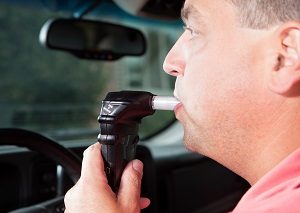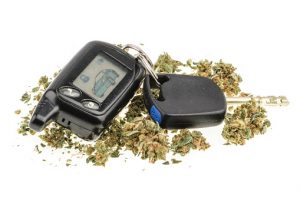“Second-Chance” Law Will Give Some Texas Dui Defendants A Break
Under the new “Second Chance” law, recent signed by Gov. Greg Abbott, Texas DUI defendants would be allowed to have their criminal record sealed from public view – even if it happened many years ago.
House Bill 3016 is applicable to Class C misdemeanors charged for driving while intoxicated with a blood-alcohol concentration below 0.15. Those convicted of crimes of a violent or sexual nature would not be eligible for a reprieve under the statute.
The law will allow first-time DUI offenders who successfully completed a six-month stretch with ignition interlocks (as well as a number of other conditions) to apply for non-disclosure. That means the DWI charge will be removed from their record, making it easier for them to land employment, obtain housing and secure certain types of loans.
The provision will only be available to those who don't cause any injury or property damages as a result of their actions. If an offender is not ordered to install an interlock or refuses to install the device, he or she must wait a full five years before becoming eligible for non-disclosure.
The law is an expansion of a similar measure from two years ago and was applicable to non-sexually-motivated Class A and Class B misdemeanors.
MADD Supports New Law
Interestingly, MADD – Mothers Against Drunk Driving – is in favor of the new law, even though it means certain convicted drunk drivers will essentially be able to wipe their records clean. The reason for the support has to do with the fact that it compels and incentivizes drivers to install and successfully use ignition interlock devices.
Texas is one of many states where a DWI offender can plead down a charge in order to sidestep the interlock ignition requirement. This law would give offenders an opportunity to walk away without a criminal record if they agree to use ignition interlocks.
Texas Transportation Code 521.246 stipulates that if a person's license is suspended after a conviction for DWI, the judge is required to restrict the person to operation of a motor vehicle that is equipped with ignition interlock devices.
MADD reports ignition interlock devices have halted some 245,000 drunk driving attempts just in the state since 2006. Expanding this even further, they assert, will help save more lives.
Order of Non-Disclosure in Texas
In Texas, having a record expunged is only possible with a pardon. However, an order of non-disclosure (i.e., sealing a record) is possible only in some cases. Those circumstances include:
- Placed on deferred adjudication community supervision for the offense in question;
- Successful completion of deferred adjudication;
- Offense must be eligible for non-disclosure (offenses are broad, but in general, serious, violent felonies and sexually-motivated offenses are not eligible);
- No Disqualifying criminal history.
This new law provides an opportunity for a non-disclosure filing within six months, and it presents an opportunity for those who have already been convicted, as the provision applies retroactively.
Our experienced DWI defense lawyers in Houston can help you formulate a smart strategy to hopefully avoid conviction in the first place. In cases where that is not possible, we work to help you minimize the impact to your life. This law will be one more way in which we can work to help you diminish the long-term impact to your life.






 Visit Houston Texas
Visit Houston Texas
 Commercial drivers are subject to
strict rules when it comes to alcohol
impairment. Because the consequences of
drunk driving could be severe if a
motorist is operating a commercial truck
while impaired, both state law and
federal law are very strict about the
impact of a DWI conviction on a
commercial driver.
Commercial drivers are subject to
strict rules when it comes to alcohol
impairment. Because the consequences of
drunk driving could be severe if a
motorist is operating a commercial truck
while impaired, both state law and
federal law are very strict about the
impact of a DWI conviction on a
commercial driver.
 Recently,
Recently,
 Over the Thanksgiving holiday in
Texas, avoiding
Over the Thanksgiving holiday in
Texas, avoiding
 Recently, the Supreme Court ruled on a
case called
Recently, the Supreme Court ruled on a
case called
 In Houston, many students have now
arrived for the semester to attend
school at Houston Community College,
Lone Star College, Houston Baptist
University, Prairie View A & M, Rice
University, Sam Houston State
University, and other local
universities. Many of these students
will kick off their semester by having a
few drinks with friends, and may will
continue to drink throughout the
semester.
In Houston, many students have now
arrived for the semester to attend
school at Houston Community College,
Lone Star College, Houston Baptist
University, Prairie View A & M, Rice
University, Sam Houston State
University, and other local
universities. Many of these students
will kick off their semester by having a
few drinks with friends, and may will
continue to drink throughout the
semester.
 Football season has officially
arrived, which means that it is now the
prime time of the year for people to
watch the game and have a few drinks.
Unfortunately, law enforcement
officials know that football
season is a time when a lot of people
like to sip some beers while watching
the game with friends. Police step up
enforcement of drunk and drugged driving
during this time of year, which leads to
more people being arrested for impaired
driving.
Football season has officially
arrived, which means that it is now the
prime time of the year for people to
watch the game and have a few drinks.
Unfortunately, law enforcement
officials know that football
season is a time when a lot of people
like to sip some beers while watching
the game with friends. Police step up
enforcement of drunk and drugged driving
during this time of year, which leads to
more people being arrested for impaired
driving.

